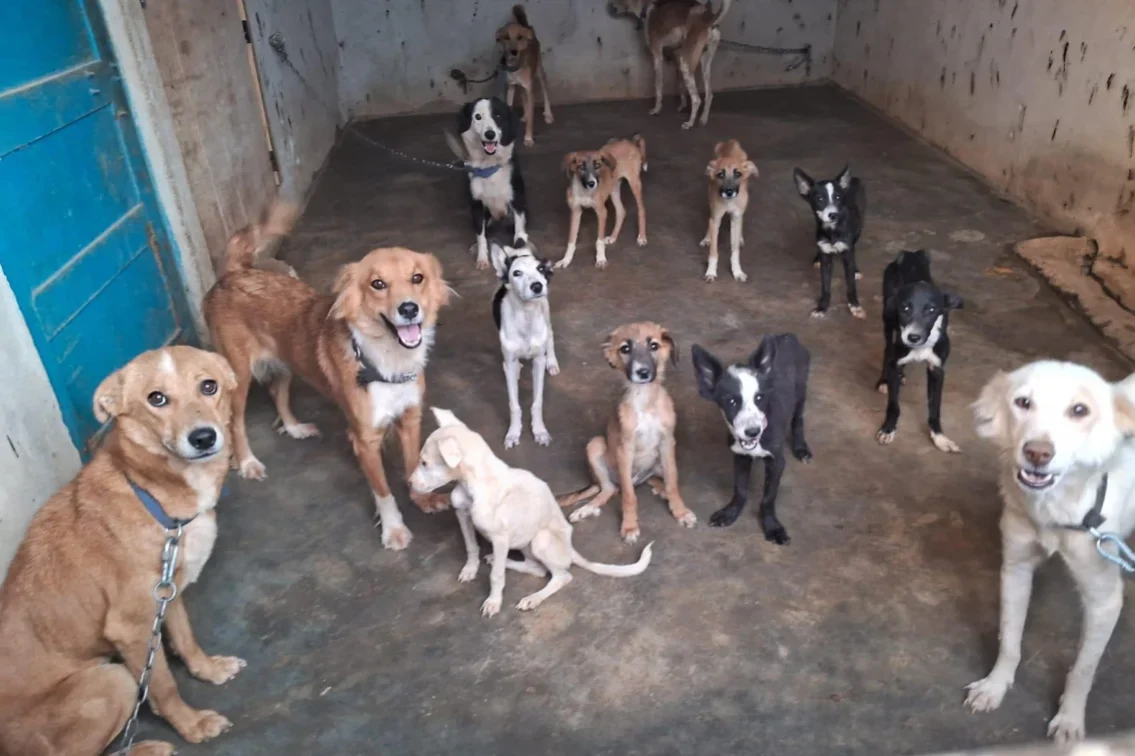This guide will help determine causes, symptoms, and treatment.
Coughing is as common in dogs as it is in people. It could occur due to a number of reasons, but most often, the body can naturally recover. In some cases though, if the coughing persists (for over a week) or is severe (when the dog is hacking or makes choking sounds) immediate medical attention is required. Some of the several causes of the coughing as identified by veterinarians include:
Causes of cough in dogs
Cough induced by infection(s)
Dogs have highly sensitive olfactory functions — this increases the possibility of infection in the respiratory tract due to various viruses, bacteria and fungi. The infection could occur in the lung tissue (commonly referred to as pneumonia), in the airway (referred to as bronchitis), or as a combination of both (referred to as bronchopneumonia).
One such illness is ‘kennel cough’, which is similar to a common cold in humans. Dogs “catch” kennel cough when they inhale bacteria or virus particles. This infects their respiratory tract and results in inflammation of the larynx (voice box) and trachea (windpipe), causing the dog to cough. Kennel cough is highly contagious between dogs — often, the body can heal naturally within a week but if the cough persists, please consult a veterinarian.
In case of a bacterial infection, the doctor might prescribe antibiotics along with a cough suppressant (human cough suppressants will do) if the symptoms are severe. Viral infections are different, and generally have to run their course despite medication. If fungi or other parasites have caused kennel cough, the medication will differ from one dog to another.
Kennel Cough
A contagious respiratory disease, kennel cough is quite common in dogs, but it could also be symptomatic of other health concerns like the flu. It is easily treatable. Kennel cough has a loud, hollow, honking sound. The veterinarian will prescribe antibiotics, and recovery will take one or two weeks. Frequent occurrences of kennel cough can cause irritation to the tracheal pipe. Avoid using a leash around the collar during walks, as it could irritate the trachea further.
Heartworms
Heartworms are a type of parasitic roundworm that can cause serious illness in dogs. Heartworms only occur when an infected mosquito bites a dog, transferring larvae into the heart and lungs. Mosquitoes sometimes get infected by heartworms, and this proves dangerous for dogs. It is a long road to recovery if a dog is infected with heartworms. One of the symptoms of heartworms is coughing, as lungs become infected due to parasitic growth.
Distemper
Distemper is a dangerous virus that is common in many animals, including canines. Canine distemper affects the respiratory system in dogs and causes mucous formation, coughing, fever, lethargy, loss of appetite, and exhaustion. Swift treatment is important in the case of distemper as it is a highly contagious disease and other dogs can get affected fast.
Lung Problems
Lung disease mainly signals the infection of lungs due to fever, pneumonia, kennel cough, etc. The dog will begin to have difficulty breathing, and this could signal mucous collection in the lungs as well. During festivals like Diwali, it is common for dogs to start having difficulties breathing because of smoke and other chemicals in the air.
Chronic Bronchitis (hacking cough)
Hacking cough lasts for months, and can irritate your dog’s airways/respiratory passageways and become worse over time. Chronic bronchitis affects the small pipes near the trachea called bronchi or bronchioles. A bronchitis cough in dogs will sound dry and raspy.
Heart diseases can cause cough
A dog can suffer from many heart conditions such as mitral valve endocarditis, dilated cardiomyopathy and congestive heart failure. These weaken and (or) thicken the heart muscle, or cause fluid accumulation. Naturally, it increases pressure on the lungs and airways, which causes the dog to cough. Depending on the type of heart disease determined by the veterinarian, medication to normalize blood pressure, improve heart rate, and reduce fluid build-up will be prescribed. It has to be combined with the right diet and exercise to improve the dog’s health.
Reverse sneezing
Humans breathe out while sneezing, but most dogs breathe in. This is known as reverse sneezing, and occurs in clusters when something irritates the back of their nasal passage. Dog owners may mistake reverse sneezing for coughing. If it occurs rarely, there’s nothing to worry about, but if it becomes severe, violent or frequent, the dog should be seen by a veterinarian.
Coughing out a foreign object
A dog will try to cough out any foreign object or particle trapped in its airway. The coughing sound in this case will be different — like a human trying to vomit with force — because the dog will try to keep its mouth open, without pausing to inhale. If you can safely check its mouth to remove the object, please do so; else, consult a veterinarian.
Other causes of coughing
Coughing can be due to many other reasons such as:
- Collapsing trachea: This occurs especially in small dogs, where the weakening of the cartilage rings (that partially encircle the trachea) causes it to collapse in on itself, causing a chronic cough
- Laryngeal paralysis: The passageway into the windpipe (called the larynx) does not fully open due to weakness of the nerves that control the muscles surrounding it
- Chronic bronchitis: Chronic inflammation of the airways gives the dog a dry, hacking cough that worsens with exercise, excitement and over time.
- Cancer of the lungs, which generally begins with coughing
Is dog cough contagious?
Not all dog coughs are contagious. Kennel cough is one of the most contagious forms of coughing, so during this time, it is important to keep dogs away from each other.
Associated symptoms of dog coughing
Frequent coughing affects and irritates the trachea, or wind pipe. Prolonged irritation might have serious damaging effects that are hard to recover from. Coughing is usually accompanied by low energy, lethargy, and fever and is more often than not a result of these.
When to visit a vet (fever, loss of appetite, Dog dry cough etc)?
If you notice coughing for a prolonged period (more than two days), it is time to take the dog to a veterinarian for a consultation. If the dog begins to stop eating, has a high temperature, or is showing other symptoms as mentioned above, then you will need to provide the dog with antibiotics to reduce inflammation, bring temperature down, etc.
Questions your vet might ask during diagnosis
What does it sound like?
Kennel cough sounds hollow, with trumpet-like tones. Otherwise, a cough could be dry. A wet cough could signal fluid and mucous in the lungs and wind pipe. Observe the sound of the dog’s cough – maybe even record it – so the veterinarian will be able to better diagnose.
Is the cough dry or moist?
A dry or wet cough could signal different health concerns. For example, a dry, raspy cough could be a sign of canine bronchitis, while a wet cough could point to phlegm collection in the throat and lungs.
Does the dog have trouble breathing between coughing fits?
If the dog has trouble breathing, and is gasping for air, it might indicate lung problems like pneumonia or distemper.
Diagnosing a persistent cough
If coughing does not resolve itself in a few days, the vet will undertake certain procedures to determine the underlying cause. This could include:
- Physical examination
- Biochemistry blood test
- Complete blood cell count
- Serology to pinpoint the cause of injection
- BNP test for heart disease
- Urinalysis
- Chest x-rays
- Ultrasound of the heart
- Measurement of blood pressure
- ECG
Dog Coughing Treatment
The dog’s veterinarian will diagnose and treat the dog based on the different symptoms that the dog displays. The usual method of treatment is the prescription of antibiotics. Talk to the veterinarian about a detailed treatment plan that includes diet and other routine changes.
Get a second medical opinion from VOSD – Vet Advice for Dogs
Home remedies for Dog Cough
There is so much you can do to take care of a dog at home, apart from veterinary treatment. Some of the different home remedies include:
Raw honey – raw honey is anti-inflammatory, soothing, and anti-bacterial. Do not confuse raw honey with honey that is sold in most grocery stores. Honey is best when it is unpasteurised, because this is where the enzymes and nutrients come from.
Coconut oil – this is full of rich, healthy fats that are given in small doses could help with diseases like kennel cough.
Frequently Asked Questions(FAQ)
1. Why is my dog coughing like something is stuck in his throat?
If you see your dog coughing every once in a while, it is completely normal. Like humans, dogs too can contract viral and bacterial infections that lead to inflammations of their respiratory tracts. They might also cough if they want to relieve themselves of some foreign substance that may have swallowed by mistake.
2. How do I know if my dog’s cough is serious?
Keep track of your dog’s cough and if their frequency increases, it can be concerning. Also, hear their coughing. Kennel coughs sound hollow and may sound like your dog hacking cough whereas other coughs sound dry. Look for phlegm during your dog’s cough which could indicate a serious issue.
3. What can I give my dog for coughing?
Honey and coconut oil are rich in anti-inflammatory and anti-bacterial properties. You can administer it to your dog in small doses as an effective and natural dog coughing treatment. However, make sure that both these ingredients are unadulterated to ensure purity and full enzymes. In severe cases, consult your vet for a proper treatment plan and medications. Do not delay meeting the vet if the cough is persistent.
4. How do you treat a dog with bronchitis?
Treating your dog with bronchitis includes a visit to the veterinarian who will do a thorough diagnosis of your dog. Based on the symptoms, the doctor will prescribe antibiotics (bronchodilators and corticosteroids) to treat the infection fast by opening the airway. The dog coughing will eventually go away if you follow the course of treatment.
5. How long does bronchitis cough last in dogs?
Bronchitis cough in dogs lasts for 10-20 days on average. They are very intense during the first five days but are manageable after that period. Chronic bronchitis however may last for months and lead to irritation of the bronchi. It gets worse over time and needs immediate medical attention.





